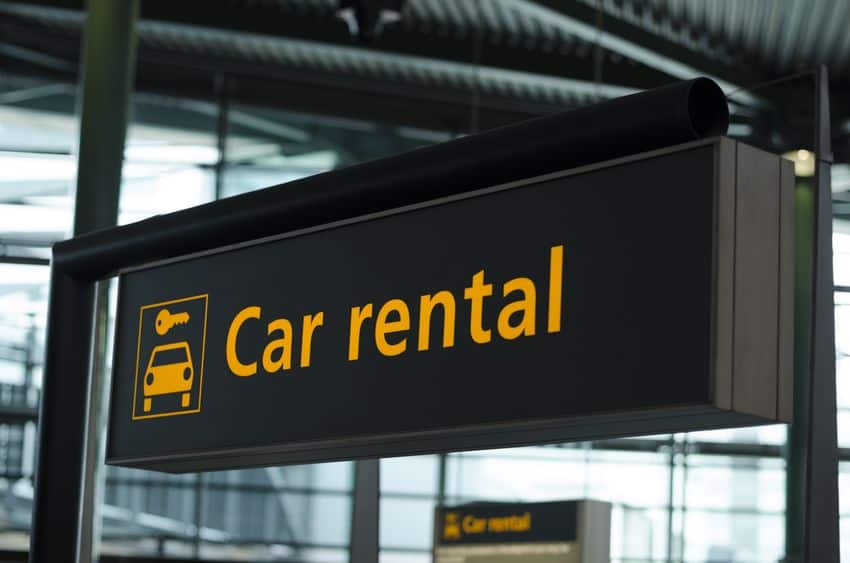Interviewing for a position can be nerve racking. Some positions require more numbers and facts, while other positions require more hands-on knowledge and know-how. Either way, there are usually a few key things to look for that tell you the interviewers are interested in you.
Is it a good sign if a company flies you out for an interview? Most of the time, yes, this is a very good sign. It shows they are dedicated to you as a possible employee, and it helps them gain knowledge of your personality and authenticity. They definitely aren’t going to sink money into someone they wouldn’t hire. So, if you get flown out for an interview, chances are, you are at least in the top 3 interviewees for the job.
This is all pretty exciting news, right? We’ll cover reasons the company might be flying you out, as well as how to prepare for a successful interview.
Reasons a Company Might Fly You Out for an Interview

Very few companies will fly out a large group of candidates for the same interview on the same day just so they can meet everyone and gauge personalities better. However, you can usually figure out if this is what the company is up to.
If they have you fly in and out on the same day, it may indicate:
- They have a large group and are gauging everyone’s fit at once
- They are hiring multiple people for the same level position
In either case, the company won’t have time to entertain or spend individual time with each prospect. They also won’t want to spend too much on food, hence why you won’t stay long. This is a big expense to pay, but oftentimes, the positions are very high level, and hiring the wrong person would be a much bigger expense than meeting everyone to ensure the correct decision.
More often than not, though, being flown out means you are a top candidate.
Get ready to meet several people from the company. Most companies are not going to dish out airfare, hotel, and eating expenses just to interview someone who might not be right for the job. If they fly you out to them, you are most likely the top candidate for the job, and chances are you will be meeting quite a few members of the company as well.
Usually they want you to meet others, so there is a collective agreement about your candidacy for the job. If your stay in the city is longer than a couple of days, it’s usually because they want you to meet higher-ups. They will usually do this in more than one or two settings to get a more rounded idea of your character and personality.
Tip: It’s good to get really comfortable with unknown places and meeting new people on the fly just in case they were to surprise you with a meeting from the VP or President of the company. You want to show confidence in your meetings instead of acting awestruck or surprised.
Preparing for the Out-of-Town Interview
Interviews can be nerve-wracking enough without piling on the stress of same-day travel. Even if you are invited to stay for more than a day, interviewing takes some practice. It’s worth it to be really methodical about both preparing for the interview and getting your travel and accommodations squared away.
Planning Your Trip

There are a few things you will need to plan that the company may not cover or take care of for you. It is also acceptable to ask about all the coverage of these items if it is not made clear to you. Some things you need to prepare for are:
- Transportation to and from airport
- Meal and travel expenses
- Transportation to and from the interview(might want to rent a car)
- Itinerary or free time while there
- Hotel accommodations
- Who is booking the trip
Being prepared for all of the above just eases the stressors that may show up on the day of travel. When preparing for a high-stress event, you want to be able to control as much as possible and keep a check on things.
This helps you focus on the most important things instead of being distracted by the small things that usually fix themselves anyway. Once you have these things planned and taken care of, you can start preparing for the interview and information you need to bring with you.
Do Your Research
When you are getting ready for an interview, you need to make yourself as knowledgeable about the company as possible. Depending on what you are interviewing for, you may need to have a good base knowledge of the company. You may need to know all, or just a combination of the following:
- What types of products they sell or services they provide
- Units moved and how they are distributed
- Sales numbers from previous quarters
- Number of employees in the department you would be involved with
- Profits from previous quarters
- The mission of the company
- Department heads that you would be involved with
- What kind of person the company is looking for with this position
- Corporate structure and culture in the workplace
- The names/faces and titles of your interviewers
- Questions for them about the job and the possible offer
- Top clients and client relations and how you can influence that
- Your strengths, challenges and how you plan to improve
- Improvements you can see to bring to the company
- Where you see yourself in 5 years
Knowing these things will not only help you in the interview process by showing you do your research and come prepared, but it will also help you acclimate quicker after you get hired.
Companies like hiring people when they feel like they won’t need hand holding through the hiring process or learning how to do the job. Be prepared for random questions like favorite ice cream or TV show. These questions are becoming more common to catch people off guard and help to remove the rehearsed mask most people have on. Answer honestly, but don’t let it knock you off your game.

Preparing Your Interview Presentation
If you are asked to do a presentation as part of your interview, you will want to know your information as if you almost have it memorized. Some tips include:
- Keep consistent eye contact throughout your presentation, so having to continue to look at the screen or computer is not the best option.
- Double and triple check all of your documents and anything you use for your presentation to make sure nothing breaks or glitches out. While we can’t always control technology, you need to do everything in your power to be in control the whole time.
- And finally, always have a plan B. If the power goes out, if your computer is broken during the flight, or if your presentation suddenly disappears from the cloud, the show must still go on. Not only does this save your interview, but it also shows how prepared and thoughtful you are in case of an emergency.
Use the coming weeks before your interview to gather and compile any questions you might have for the hiring manager. You can separate these questions into two categories: questions to ask during the interview about the job or company, and questions for after you get a job offer.
You will want to seem interested in more than just surface-level information and asking questions helps you get a concrete idea of whether this is a place you want to work or not. Having questions prepared for after the offer shows preparedness and confidence. Gathering these questions also allows you to figure out what circumstances it would take for you to relocate for this company. You want to walk into the interview with a solid decision as to whether this company is worth moving for, and what they need to bring to the table.
What to Bring Along on an Out-of-Town Interview
It is always smart to bring something with you that your interviewers can tangibly hold, especially if more than one person will be in the room at a time. At the least, you will need to bring your resume and a list of your strengths and weaknesses. This shows vulnerability and preparedness.
It is a good thing to let them know your strengths and weaknesses. It shows them you are willing to work on becoming better. Just be sure to keep things positive – don’t put yourself down. Show you are self-aware and in-control.
You also can provide a few pages of quick notes that go along with your presentation. If someone has papers in front of them, there is a less chance of issues with them not seeing correctly or misunderstanding something you said. It’s also a good safety net for you in case you mispronounce or misrepresent information. It can be chalked up to nerves rather than them thinking you don’t know the information.
Of course, bring your business cards if you have them, and any extra information you need or want them to know. You want to bring this collection of materials in something like a briefcase or a satchel; that way, when you present yourself, you appear organized and professional.
What to Wear for an Out-of-Town Interview
What you wear varies depending on where you are applying. However, most places want you in formal business attire.
- For men, a suit, button-down shirt and a nice tie with shined shoes are appropriate. A very nice trimmed beard or goatee is acceptable at some places, but if you aren’t sure, clean-shaven is always the safest option.
- For women, a business style dress that touches your knees, a neutral-colored pantsuit with a blazer, or slacks and a button-down shirt with a blazer and nice shoes. High heels are fine as long as they are a moderate height and not too tall. If you wear make-up, you want it to look as natural as possible. Less is best.
If you are being flown in from your interview and someone from the company is picking you up, you will want to wear business casual attire that won’t become wrinkled after sitting on a plane. If you are being picked up by uber and are going to your hotel first, it is fine to wear comfortable traveling clothes that are completely casual as long as you change before meeting the hiring person.
Now, if you are flown out for an interview, you will need to ask for an itinerary in advance. If you are there for a day, they may take you out for a meal or have you tour the company, which could require a separate change of clothes.
If you are asked to stay for a couple of days, chances are they will have a few more activities planned than just the interview or meals. You want to be as prepared for every activity as you can be to make sure you make the best impression on every member of the company you come in contact with. As a golden rule, it is always best to dress up rather than dressing down.

First Impressions
The first time you meet anyone is what they are going to remember you by. Everything you do from here on out is going to be based upon their first impression of you, so you want to make sure it is a good one. You can ensure a good first impression if you do a few certain things.
- Acknowledge them by Mr./Mrs. and their last name
- Introduce yourself
- Make direct eye contact
- Give a good firm handshake
- Make sure to ask them how they are/how their day is going(it shows empathy)
- Acknowledge why you are there and explain how thankful you are for the opportunity
When these boxes are all checked, automatically, the interviewer walks away, remembering how polite, gracious, caring, and prepared you are.
You also want to pay attention to your facial expressions and body language. If anything was said that you don’t necessarily like, you are going to want to keep it to yourself until the appropriate time to talk about it.
You need to show that you can stay composed in the face of opposition, this will be an advantage if you have clients you have to deal with. Keeping your composure at all times is the best way to prove you can stay calm, cool, and collected, even in high-stress times.
When You Receive a Proposal From an Out-of-Town Company
Chances are, if a company flies you out for an interview, they already know – given you don’t tank the meeting – that they are going to offer you a position at the end. Make sure you research the area and walk into the interview, knowing what your non-negotiables are.
For example, if you have to live in a certain school district and your salary affects that, then you won’t take anything less than that.
You also want to be able to ask for the following:
- A relocation packages
- Appropriate salary for the area
- A decent amount of time to get you and your family settled into the new area
They will most likely want you to move along pretty quickly, so you will need to have a general idea about where you want to live and how quickly you can get yourself relocated. You need to know the price of relocation to that area and what the housing costs are.
Studies show that if you counter a salary with at least a 10% raise, you will most likely walk away with more money or more vacation time. You shouldn’t respond with the counteroffer immediately; you can ask for a few days to think about it and then counter in an email later.
Now, if the company gives you an ultimatum, you can counter-offer right at the interview. You just have to decide how bad you want the job to maybe not get what you want.
Studies show at the point where a company is offering you a job, they have already put so much time, effort and money into hiring you they are willing to do a little extra to keep you. Especially if they’ve flown you out and taken good care of you. They already know they want you.
If you need to look at this from a different perspective, imagine you are selling your skills and labor to the company. They have to sell their values, work ethics, expectations, and needs to you. They have a lot more that they have to convince you of for you to accept the proposal.
Following up
If your interview doesn’t end in a job offer in 5-7 days, you are going to want to follow up with your company. Following up with them shows interest and consistency in your desire for the job.
You want to show your interest and commitment but also keep it short and to the point. If you received a job offer, chances are they will contact you in 1-2 days, but on the off chance they haven’t, following up with them is essential in making sure no balls were dropped.
Your follow up needs to be simple questions about the next steps and offer to do anything you can to help the process run smoother or quicker. Companies like people who are willing to take on a little extra to make sure things go as planned.
Overall, don’t sell yourself short for a job that won’t offer you benefits worth what you are. Sometimes a job is just a means to pay bills with, but oftentimes, you need to love what you do, and the company needs to value you as an employee. Be yourself, be proud of your accomplishments, your strengths, and walk into that boardroom, even after a long flight, with positivity and confidence.
